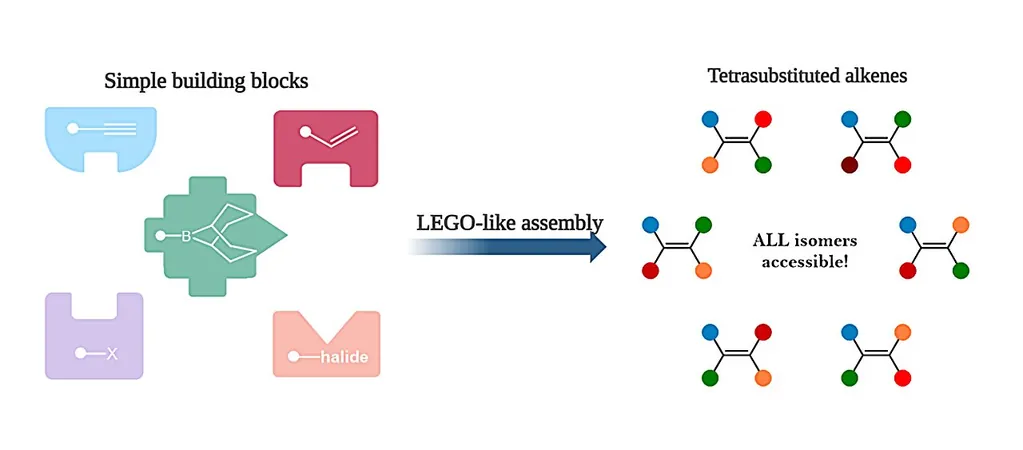
Breakthrough RSVPreF Vaccine Shows Promising Results in Protecting High-Risk Older Adults
2025-01-20
Author: Jia
Breakthrough RSVPreF Vaccine Shows Promising Results in Protecting High-Risk Older Adults
In a monumental study spanning the 2023-2024 respiratory virus season, researchers have unveiled compelling evidence that the Respiratory Syncytial Virus Prefusion F (RSVPreF) vaccine boasts an astounding 91% adjusted vaccine efficacy (VE) in preventing serious respiratory syncytial virus (RSV) infections requiring hospitalization or emergency department (ED) visits among adults aged 60 and older. This significant finding was published in the esteemed JAMA Network Open/Infectious Diseases.
The RSVPreF vaccine proves particularly effective with an 82.6% efficacy rate against RSV-associated lower respiratory tract infections (LRTIs) showing at least two symptoms. Even more encouraging, the vaccine's efficacy skyrockets to 94.1% for severe RSV-associated LRTIs, which are characterized by three or more symptoms. Moreover, it effectively prevents RSV-related hospitalizations with a remarkable 93.8% rate.
Leading the research, Dr. Sara Y. Tartof from the Kaiser Permanente Bernard J. Tyson School of Medicine in Pasadena, California, highlighted the vaccine's reliable performance across various demographic and clinical subgroups. Notably, those with existing health conditions such as chronic obstructive pulmonary disease (COPD), asthma, and cardiovascular diseases experienced consistent protection. Interestingly, the efficacy was slightly higher among the 60 to 69 age group (85.7%) compared to those over 70 (79.4%).
Historically, previous clinical trials showcased the vaccine's effectiveness, but there was a notable scarcity of data on its efficacy among the typical high-risk groups, particularly those over 75 years and individuals with preexisting health issues. The urgency for more comprehensive evidence became apparent as researchers underlined the significant public health advantages that vaccination against RSV could yield within this vulnerable population. Based on their analysis, they estimate that for every 250 adults vaccinated, one RSV-related ED visit or hospitalization could be avoided—a critical opportunity to alleviate the healthcare burden of severe RSV cases.
To gather insights on this vital topic, Tartof and her team conducted a retrospective case-control study applying a robust test-negative design within a real-world environment. They analyzed data from Kaiser Permanente Southern California, focusing on adults aged 60 and older who tested positive for RSV between November 24, 2023, and April 9, 2024.
Over the study duration, a staggering 10,566 adults met the criteria for hospitalization due to LRTD or were treated in EDs. Of these, researchers narrowed their focus to 7,047 LRTD events involving tested samples. The average age of patients included in the final cohort was 76.8 years, with a majority being women (54.2%). The demographic breakdown included 11.9% non-Hispanic Asian or Pacific Islander, 33.0% Hispanic, 17.0% non-Hispanic Black, and 36.9% non-Hispanic White.
A concerning 14.2% of participants faced immunocompromising conditions, and an overwhelming 93.9% had additional comorbidities, with over half (57.4%) aged 75 and older. The findings from this expansive study considerably enrich the understanding of RSVPreF's effectiveness against severe outcomes in vulnerable populations.
With recent recommendations emerging from the 2024 Advisory Committee on Immunization Practices, emphasizing the importance of RSV vaccines for all adults aged 75 and older and those aged 60 to 74 at increased risk, these results are pivotal in addressing existing data gaps. Researchers assert that this evidence bolsters the case for more aggressive vaccination strategies against RSV in high-risk groups.
Stay informed about your health and the developments in vaccinations; the future looks promising in the fight against RSV!



 Brasil (PT)
Brasil (PT)
 Canada (EN)
Canada (EN)
 Chile (ES)
Chile (ES)
 Česko (CS)
Česko (CS)
 대한민국 (KO)
대한민국 (KO)
 España (ES)
España (ES)
 France (FR)
France (FR)
 Hong Kong (EN)
Hong Kong (EN)
 Italia (IT)
Italia (IT)
 日本 (JA)
日本 (JA)
 Magyarország (HU)
Magyarország (HU)
 Norge (NO)
Norge (NO)
 Polska (PL)
Polska (PL)
 Schweiz (DE)
Schweiz (DE)
 Singapore (EN)
Singapore (EN)
 Sverige (SV)
Sverige (SV)
 Suomi (FI)
Suomi (FI)
 Türkiye (TR)
Türkiye (TR)
 الإمارات العربية المتحدة (AR)
الإمارات العربية المتحدة (AR)